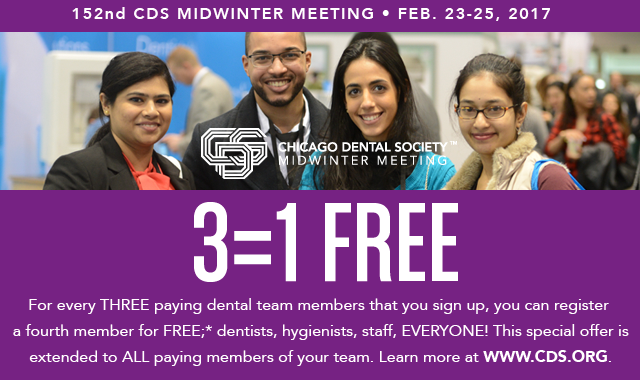5 dental New Year’s resolutions
Here are five dental related New Year’s resolutions that will not only help improve oral health, but will help improve overall health as well.
As 2017 fast approaches, so do the New Year’s resolutions.

Some resolve to be more thoughtful, to live each day to the fullest or to get organized. Many resolve to eat healthier and exercise more. However, most people overlook the connection between the mouth and the body when it comes to overall health.
Here are five dental related New Year’s resolutions that will not only help improve oral health, but will help improve overall health as well.

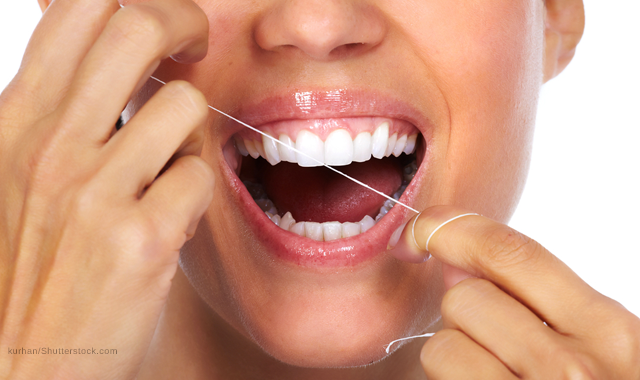
Resolve to be the boss of floss
By floss, I mean clean in between your teeth whichever way works for you best. Brushing alone only reaches about two-thirds of your tooth surface, no matter how well you brush. What about that last third in between your teeth and below your gums where cavities and gum disease starts? The longer the bacteria accumulates, the stronger it gets, which causes more than just bleeding and gum inflammation. This bacteria can cause your gums and bone that hold your teeth in place to break down, and they don’t grow back. The plaque full of bacteria left behind from only brushing can lead to disease beyond your mouth too. Research has shown, bacteria and inflammation in the mouth and gum disease is linked to diseases beyond your mouth like heart disease, rheumatoid arthritis, difficulty controlling blood sugar levels in diabetes, low birth weight/pre-term births and even Alzheimer’s disease. Put floss by your bed or even floss while watching TV, just don’t forget to do it once per day!
As hygienists, we are there to give refreshers on correct flossing techniques and other options beyond string floss, such as water flossers or interdental brushes. Our main goal is educating and helping patients achieve a healthy mouth and preventing disease, so a flossing lesson is always happily given!

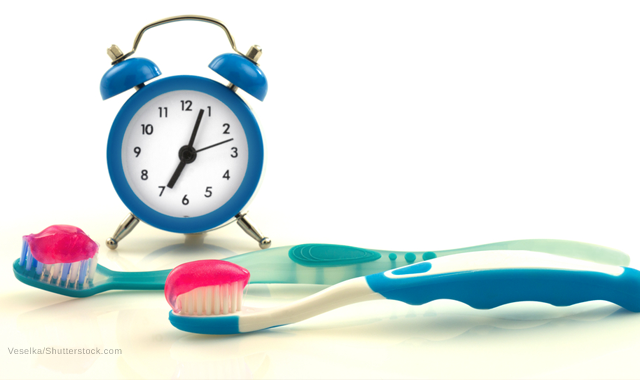
Resolve to brush twice per day for at least 2 full minutes
Growing up I was always told that if you are going to do something, do it right. This includes brushing your teeth! Brushing with a soft bristled toothbrush, at a 45 degree angle toward your gumline, for a full two minutes, twice per day is more than a recommendation, it’s a must! Also, don’t forget to change your toothbrush every three-to-four months or when the bristles become frayed. Using a frayed, worn toothbrush, is less effective at removing plaque – it’s basically just pushing paste around. I like to recommend changing your toothbrush at the change of the seasons. Changing your toothbrush after sickness is a good idea too.
Brush for a full two minutes! Many people simply don’t brush long enough which leads to missing areas and not removing plaque as well as possible. Don’t hesitate to set a timer on your phone for two minutes or even invest in an electric toothbrush that automatically turns off after two minutes.
Another mistake people make is not brushing at night; so bacteria sits undisturbed, basically pooping acid all over your teeth and gums. Saliva flow, which helps protect your teeth from acidic, bacterial bi-products, decreases at night so your teeth are left defenseless as well. Give your mouth a fighting chance to be healthy by brushing at night!
Advertisement
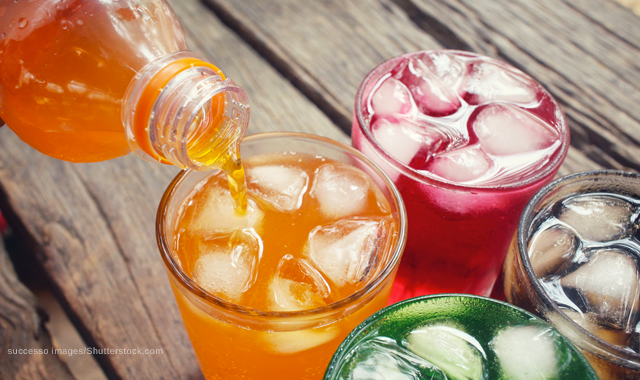
Resolve to kick the Coke and other sugary and acidic beverages
The disease-causing bacteria in your mouth thrive off sugar you consume - the more sugar you eat, the more sugar bacteria eat. Remember above about bacteria pooping acid? That’s what the bacteria do next. This acid weakens, or decalcifies, your teeth - which is how cavities begin. If your drink is acidic and sugary, your teeth are not only being weakened by the acid from bacteria, but getting a double-dose of acid from the drink itself.
If you are going to have that soft drink, use a straw so your teeth aren’t being bathed in as much sugar and acid. Don’t sip either; drink it and be done with it so your mouth has a chance to recover from the acid attack. Along the same lines, drink water after a sugary and/or acidic beverage, to help wash away the sugar and help bring your mouth back to being pH balanced. There’s also an added bonus to limiting liquid calories, you may lose some weight!
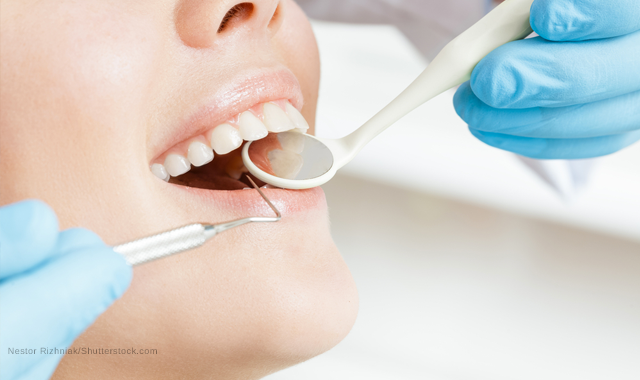
Resolve to keep regular and recommended dental appointments
Regular dental appointments allow both hygienists and dentists to monitor the health of your mouth. Many dental problems, such as chronic gum disease and cavities, don’t hurt in the beginning stages. It’s once they have progressed to a point where treatment is quite extensive, not to mention expensive, that you actually feel them. For instance, a cavity tends to only hurt once it has reached the center of the tooth where the nerves are located. At this point, a filling won’t simply take care of the problem. You may need a root canal and a crown, if the tooth can be saved at all. This is why detecting problems early is so important. Simply put, prevention is cheaper than restoration.
Hygiene appointments are more than “just a teeth cleaning.” Remember from earlier how oral bacteria from gum disease has been linked to diseases in the body? Hygienists not only remove this disease-causing plaque full of bacteria and the hardened/calcified plaque (tarter or calculus) that can only be removed with special instruments, your hygienist also has a keen eye. Hygienists evaluate your head, neck and tissue in the mouth for any indication of abnormalities and cancer. Some diseases and disorders show symptoms in your mouth before your body; like diabetes, vitamin deficiencies, and autoimmune disorders. Your hygienist can alert you to any underlying issues that may be present. Hygienists are a wealth of knowledge and an educator when it comes to prevention of disease, so please listen to our recommendations!
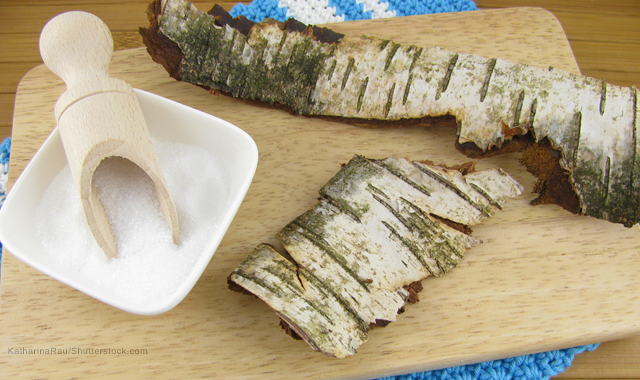
Resolve to tame your sweet tooth by incorporating xylitol
Limiting your sugar intake can be so hard because sometimes you just crave something sweet. Instead of reaching for that candy bar or a bag of chips, try putting that sweet tooth to rest with mints, candies, or gum that contain xylitol. Xylitol is a natural sugar alcohol that is found in many fruits and vegetables, but is mostly derived from birch tree bark and corn cobs. It is just as sweet as sugar, but with around 40 percent less calories and 75 percent less carbs than sugar. Best of all, the bacteria in your mouth cannot digest xylitol, like they can sugar. This means xylitol can not only reduce tooth decay, but can reduce plaque formation too. Xylitol does not require insulin to metabolize it, so it doesn’t spike blood sugar for diabetics either. To be effective in regards to dental health make sure you get eight to 15 grams per day from quality brands like Epic or Spry. However, just like chocolate or grapes, keep it away from your dogs. Their metabolisms are different from humans and it can cause severe hypoglycemia leading to liver toxicity.
Even if you don’t make a New Year’s resolution, striving for a healthy mouth is always a good idea.
Floss and Flip Flops Episode 13: The Focal Point of Infection
January 10th 2023The Sanders Sisters jump into 2023 with a discussion of the many conditions that display some of their earliest symptoms in the oral environment, and all the ways this can connect to systemic issues that can become serious health challenges for patients.
Floss & Flip Flops Episode 12: The 12 Medical Conditions of Concern…and a Partridge in a Pear Tree
December 2nd 2022Join the Sanders Sisters as they welcome the holidays and the last episode of their first season of Floss & FlipFlops! In this episode, the sisters discuss the 12 medical conditions on Santa’s list that can indicate a bigger systemic complication, and how you can integrate your knowledge of these conditions in helping your patients achieve lifelong health!
